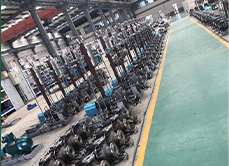English
- Afrikaans
- Albanian
- Amharic
- Arabic
- Armenian
- Azerbaijani
- Basque
- Belarusian
- Bengali
- Bosnian
- Bulgarian
- Catalan
- Cebuano
- Corsican
- Croatian
- Czech
- Danish
- Dutch
- English
- Esperanto
- Estonian
- Finnish
- French
- Frisian
- Galician
- Georgian
- German
- Greek
- Gujarati
- Haitian Creole
- hausa
- hawaiian
- Hebrew
- Hindi
- Miao
- Hungarian
- Icelandic
- igbo
- Indonesian
- irish
- Italian
- Japanese
- Javanese
- Kannada
- kazakh
- Khmer
- Rwandese
- Korean
- Kurdish
- Kyrgyz
- Lao
- Latin
- Latvian
- Lithuanian
- Luxembourgish
- Macedonian
- Malgashi
- Malay
- Malayalam
- Maltese
- Maori
- Marathi
- Mongolian
- Myanmar
- Nepali
- Norwegian
- Norwegian
- Occitan
- Pashto
- Persian
- Polish
- Portuguese
- Punjabi
- Romanian
- Russian
- Samoan
- Scottish Gaelic
- Serbian
- Sesotho
- Shona
- Sindhi
- Sinhala
- Slovak
- Slovenian
- Somali
- Spanish
- Sundanese
- Swahili
- Swedish
- Tagalog
- Tajik
- Tamil
- Tatar
- Telugu
- Thai
- Turkish
- Turkmen
- Ukrainian
- Urdu
- Uighur
- Uzbek
- Vietnamese
- Welsh
- Bantu
- Yiddish
- Yoruba
- Zulu
Telephone: +86 13120555503
Email: frank@cypump.com
Dec . 09, 2024 17:35 Back to list
Efficient Sewage Pump for Clog-Free Performance and Reliable Wastewater Management
Non-Clog Sewage Pumps Essential Tools for Effective Wastewater Management
In the world of wastewater management, non-clog sewage pumps represent a critical component in ensuring efficiency and reliability. These specialized pumps are designed to handle the tricky and often unpredictable nature of sewage systems, which can include solid waste, debris, and a variety of other materials that can cause conventional pumps to fail. In this article, we'll explore the design, functionality, and advantages of non-clog sewage pumps, highlighting their importance in maintaining effective wastewater systems.
Understanding Non-Clog Sewage Pumps
Unlike traditional pumps, which can easily become clogged with solid materials, non-clog sewage pumps are engineered with a specific focus on preventing blockages. They feature an open or semi-open impeller design, which allows for better handling of fibrous and solid waste without the risk of jams. This design not only enhances the pump's performance but also extends its operational lifespan, making it a cost-effective solution for industries, municipalities, and residential applications.
Non-clog sewage pumps are available in various configurations, including submersible and self-priming models. Submersible pumps are often employed in sewage basements or septic tanks, as they can operate underwater without the need for additional piping. Self-priming pumps, on the other hand, are used primarily in situations where the pump must be located above the fluid being pumped, allowing for the removal of sewage in a range of environments.
Key Features of Non-Clog Sewage Pumps
1. Robust Construction Non-clog sewage pumps are built from durable materials such as cast iron, stainless steel, or high-grade thermoplastics. This construction not only ensures longevity but also enables the pumps to withstand the corrosive and abrasive nature of sewage.
2. High Flow Rates These pumps are designed to move large volumes of wastewater quickly and efficiently. This feature is crucial in preventing backups and overflows that can lead to hazardous situations.
3. Versatility Non-clog pumps can handle a variety of materials, including hair, lint, rags, food waste, and other solids and fibrous materials commonly found in sewage. This versatility makes them suitable for use in residential, commercial, and industrial settings.
non clog sewage pump

4. Energy Efficiency Modern non-clog sewage pumps are designed with energy efficiency in mind. Many models feature variable speed drives that optimize pump performance while minimizing energy consumption, which can lead to substantial cost savings over time.
Advantages of Non-Clog Sewage Pumps
1. Reduced Maintenance Costs One of the primary benefits of using non-clog sewage pumps is the significant reduction in maintenance costs. Because they are designed to handle solids and prevent clogs, these pumps require less frequent cleaning and servicing, allowing businesses and municipalities to allocate resources elsewhere.
2. Enhanced Operational Efficiency With the ability to manage a broad range of wastewater materials, non-clog pumps increase the overall efficiency of sewage systems. They help ensure that wastewater is moved promptly and effectively, minimizing the risk of environmental contamination.
3. Improved Safety Clogged sewage systems can lead to overflows, creating hazardous situations for both human health and the environment. By utilizing non-clog sewage pumps, the risk of backups is greatly reduced, providing a safer solution for managing wastewater.
4. Scalability Non-clog sewage pumps are available in various sizes and capacities, making them suitable for applications ranging from small residential homes to large industrial facilities. This scalability ensures that users can find a pump that meets their specific needs without compromising on performance.
Conclusion
Non-clog sewage pumps are a vital component of modern wastewater management systems. Their robust construction, efficiency, and ability to handle a variety of materials make them an indispensable tool for any application dealing with sewage and wastewater. As communities and industries increasingly prioritize sustainability and efficiency, the role of non-clog sewage pumps will continue to grow, ensuring that our wastewater systems remain functional and environmentally friendly. Investing in these advanced pumps is not only a choice for operational effectiveness but also a commitment to protecting public health and the environment.
-
ISG Series Vertical Pipeline Pump - Chi Yuan Pumps Co., LTD.|Advanced Hydraulic Design&Energy-Efficient Solutions
NewsJul.30,2025
-
ISG Series Vertical Pipeline Pump - Chi Yuan Pumps Co., LTD.
NewsJul.30,2025
-
ISG Series Vertical Pipeline Pump - Chi Yuan Pumps Co., LTD.|energy-efficient fluid handling&industrial durability
NewsJul.30,2025
-
ISG Series Vertical Pipeline Pump - Chi Yuan Pumps | Advanced Engineering&Industrial Efficiency
NewsJul.30,2025
-
ISG Series Pipeline Pump - Chi Yuan Pumps | High Efficiency, Energy Saving
NewsJul.30,2025
-
ISG Series Vertical Pipeline Pump-Chi Yuan Pumps|High Efficiency&Reliable Performance
NewsJul.29,2025










